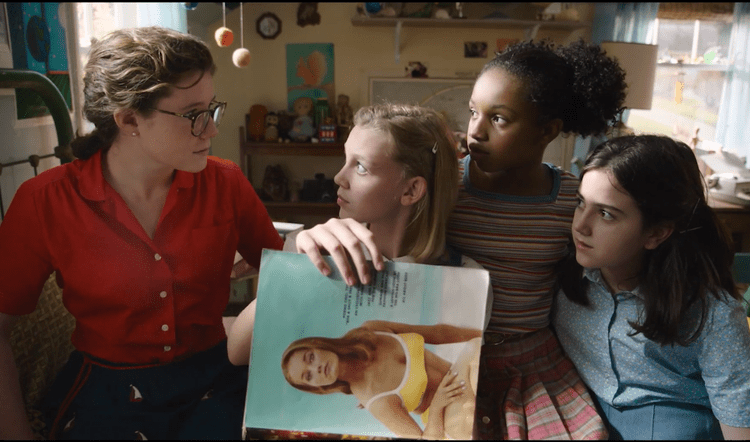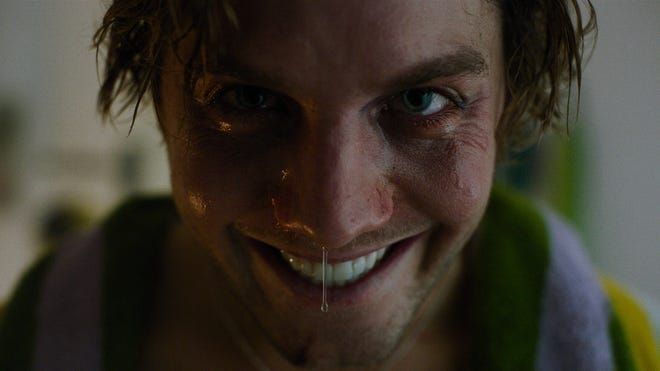'Are You There, God? It's Me, Margaret.' Is Surprisingly Good
'Are You There, God? It's Me, Margaret." is getting close to zero traction at the box office... but it deserves sold-out shows.

I have to admit, as I walked into the movie theater this evening, I didn't have high hopes here. The only thing I had to go on (and the only hope I had) were the reviews from the audience members on Rotten Tomatoes, who were seemingly praising the film (I never care what the RT critics say about films, as they're seldom correct about anything these days). I also admittedly had no idea what this movie was going to be about, who was in it (besides Goddess Rachel McAdams, who I found out tonight is still a very attractive woman in her mid-40s)
But as I sat down in the completely empty 7th theater tonight for the only showtime at all today for Are You There, God? It's Me, Margaret., I began to quickly lose hope. "Why is there only one showing today?" I thought to myself. "This movie's only been out for a couple weeks... and there's no one here!"
The opening scene didn't instill much more confidence in me, as I found the very first scene to be boring and almost cliché. "Okay, here we have an average, close-knit family in the early 1970s that obviously love each other very much. But how is this compelling? Why should I care about this?" I thought.
Some of the earliest scenes in this film consisted of Margaret meeting her new group of friends in a suburb of New Jersey; and I couldn't help but think that this group of Margaret's new friends just seemed like a younger knockoff of the clique in the film Mean Girls (and it certainly didn't help my suspicions that Rachel McAdams had one of the starring roles in the film).
But as the first act gained some traction, I started to realize why exactly I should care about the characters I was seeing and the interactions and experiences they were sharing in the world around them, and that this film was actually going to be quite different than the standard, post-modern trash coming out of Hollywood that I'm used to.
And as the movie progressed, I found myself not only liking, but feeling for this character Margaret, who's clearly trying her hardest to navigate this new chapter in her life, cope with her pre-adolescent awkwardness, fit in, and find some relative semblance of meaning in her life.
And the more I got to know this character Margaret, the more interesting, funny, and even relatable I found her to be. She reminded me quite a bit of my own pre-adolescent awkwardness - even as a guy - and in retrospect, I can only imagine how much more any woman would be able to relate to her.
This film is really funny. A lot of the humor arrises out of the ignorance, curiosity, and even at times, the precociousness of these pre-adolescent girls, who seem to be sort of afraid, but also fascinated with the opposite sex and their looming adolescence. Watching this group of pre-teen girls ogle at the centerfold of one of Margaret's father's Playboy magazines she snatched from underneath his bed is hilarious and one of the most memorable scenes in the film, and listening to them actually read the articles out-loud to each other instead of just looking at the pictures makes for great characterization and insight into the minds of these characters, and how badly they all want to skip adolescence and go straight to their womanhoods. This also happens to be one of the biggest themes of the movie, as the secondary plot specifically revolves around these young girls dying to get their periods, and almost competing with each other to become more feminine earlier than the rest of girls in their circle. In another hilariously memorable scene, Margaret says a prayer after she finds out her friend has gotten her period before she does, and confesses to God that she hates the level of jealousy she feels for her friend at that moment, and begs Him to "let her" get her period as soon as possible. The whole scene is laugh-out-loud funny.
Philosophy and religion play a huge role in this film, in a very clever and artistic fashion. Margaret's character spends a good portion of the film trying to figure out what she personally believes on a religious level, because her parents intentionally raised her without it. Her father was raised Jewish and her mother was raised Christian, and her mother's parents (being strict Christians) didn't approve of her marrying a Jewish man, so they disowned her for making that decision. But now that Margaret is approaching adolescence, she realizes it may be time for her to start considering what she believes philosophically, and begins her journey to discover what that is, without her parent's approval. This plot cleverly ties the entire film together, as Margaret's character probably spends more time narratively talking to God than probably any other character in the film. Coincidentally though, it's this primary plot that gets the least amount of resolution by the end of the movie; but it's this lack of resolution for the philosophical plot line that actually turns out to be the most satisfying in the end.
I imagine by the time you read this review, it may be too late to see the film. My guess is that something went wrong with on the marketing-end here. Maybe the marketing budget was too small, maybe they didn't hit the right demographic, maybe the hit too many demographics with not enough focus - I really don't know. But what I do know is that Are You There, God? It's Me, Margaret. deserves the good reviews its receiving online. It's not just getting these high reviews but it's woke or because it has a strong, powerful whamman main character. It truly is a great movie with an interesting story, and it doesn't deserve to bomb in the box office like it is right now. I found out this evening that this movie was actually based on a Judy Blume novel of the same name that I've never heard of until now. It made for a good film, but maybe it needed a catchier title to transfer this story to the silver screen. I'm really not sure, but if you're able to catch the day's single-showing of Are You There, God? It's Me, Margaret. at 7:40 PM in an empty theater tomorrow night, take the opportunity. You won't regret it, because it's a very entertaining film.




